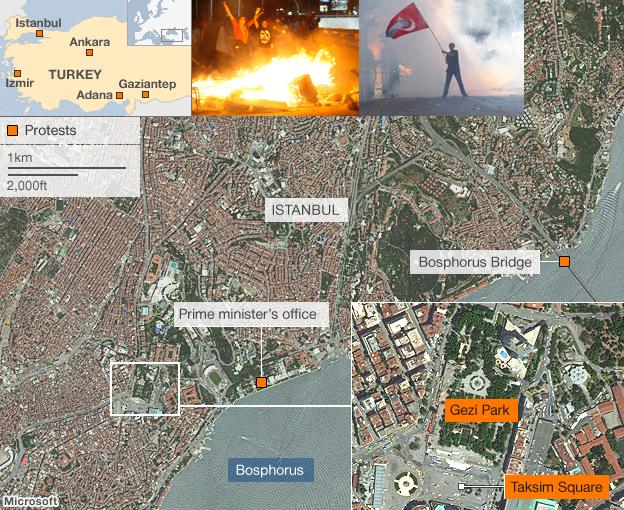Turkey protests: Istanbul erupts as Gezi Park cleared
- Published
After dramatic clashes overnight, Istanbul is now calm - says BBC reporter James Reynolds
Protesters have clashed with Turkish police in Istanbul, after riot squads used tear gas and water cannon to eject demonstrators from Gezi Park.
The protesters quickly fled the park, but later erected barricades across nearby streets and lit bonfires.
Witnesses said it was one of the worst nights of unrest since the park was occupied 18 days ago.
Police blocked off the Bosphorus Bridge to stop demonstrators reaching Taksim Square, where the park is located.
Clashes continued into Sunday morning in the streets around the square, eyewitnesses say. On the square itself, bulldozers went to work, clearing away the protesters' abandoned barricades.
Thousands of people also took to the streets of the capital, Ankara, to express support for the protests.
The Confederation of Public Workers' Unions (KESK) also said it would call a nationwide strike on Monday, while another union grouping is deciding whether to join the action.
Medical officials estimate that 5,000 people have been injured and at least four killed since protests began in earnest on 31 May.
Prime Minister Recep Tayyip Erdogan is due to hold a rally in Istanbul later on Sunday.
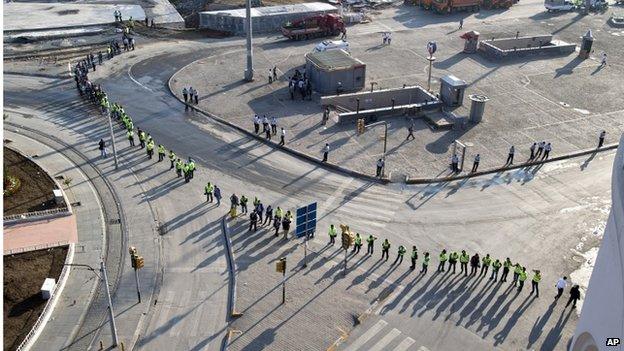
Police could be seen forming a cordon around the square.
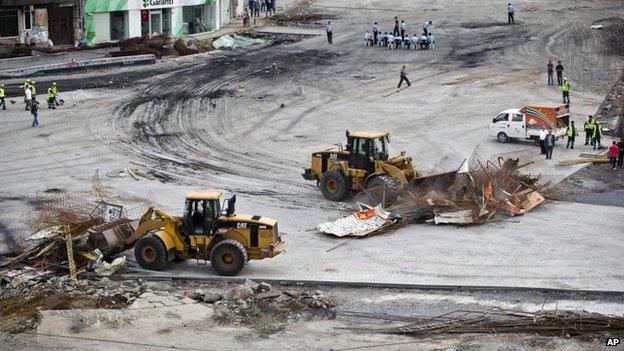
Bulldozers were at work in Taksim Square on Sunday morning, clearing away the makeshift barricades erected by protesters.
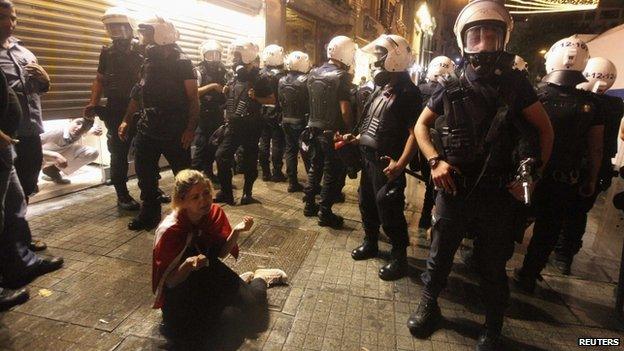
Riot police chased protesters from the city centre through the night.
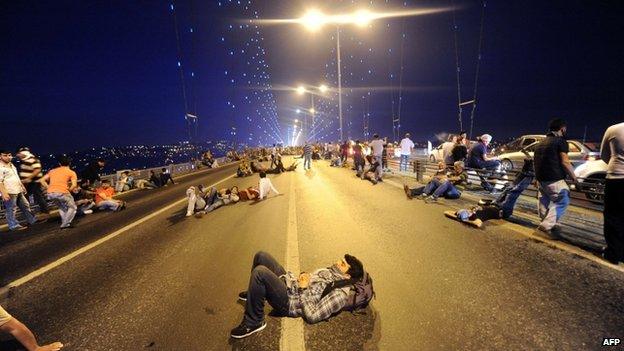
Protesters who tried to cross the Bosphorous Bridge to reach Taksim Square overnight were held back by police. Instead, they "occupied" the bridge.
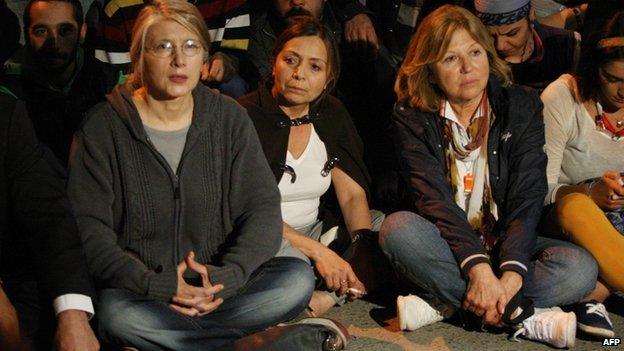
In the capital, Ankara, protesters could be seen outside the US embassy early on Sunday, calling for the Turkish government to resign.
Protesters dislodged
The protests began as a local protest against a plan to redevelop Gezi Park, but snowballed into nationwide anti-government protests after the perceived high-handed response of the authorities.
Earlier in the week the police cleared Taksim Square, in which the park is located, but the government had since appeared to be more conciliatory.
Mr Erdogan, a hate figure for the protesters, had agreed to postpone the redevelopment while the courts considered the project's legality.
However, in a speech to supporters of his Justice and Development (AK) Party in Ankara on Saturday he said the park had to be "evacuated" by the security forces.
And late on Saturday riot squads moved in, taking just 30 minutes to dislodge the protesters.
The BBC's James Reynolds, who was at the park, says the officers advanced slowly, wearing gas masks and carrying riot shields, amid a cloud of white tear gas.
Most protesters chose to leave to avoid getting hurt. Some regrouped in nearby streets, but police fired more tear gas in an effort to disperse them.
Clashes then erupted around the city, with protesters ripping up paving stones and tearing down fences to use as barricades. In some areas they chanted: "Tayyip resign."
Police chased protesters to hotels where they had taken refuge, and some activists claimed medical facilities were targeted with water cannon and tear gas.
One resident, who lives 10 minutes from Gezi park, told the BBC he had been woken at 06:00 (03:00 GMT) on Sunday by the noise of police chasing protesters. People had to shut their windows, he said, because of the tear gas filling the street.
In Ankara, thousands of protesters gathered for a rally near the US embassy.
International concern
The BBC's Chris Morris: "Thousands on the streets of Ankara are expressing their support for protesters at Taksim Square"
Our correspondent says the prime minister has won back the ground that he lost to protesters two weeks ago.
But it is not yet clear which side has won the larger fight for the country's support.
Last month, an Istanbul court issued an initial injunction against the plan to cut down trees in the park to make way for a shopping centre and replica 18th-Century military barracks. The government has appealed against the ruling.
Demonstrators have accused Mr Erdogan's government of becoming increasingly authoritarian and of trying to impose conservative Islamic values on a secular state.
The police crackdown on protesters in Istanbul, Ankara, and other towns and cities has drawn international concern, especially from Europe.
